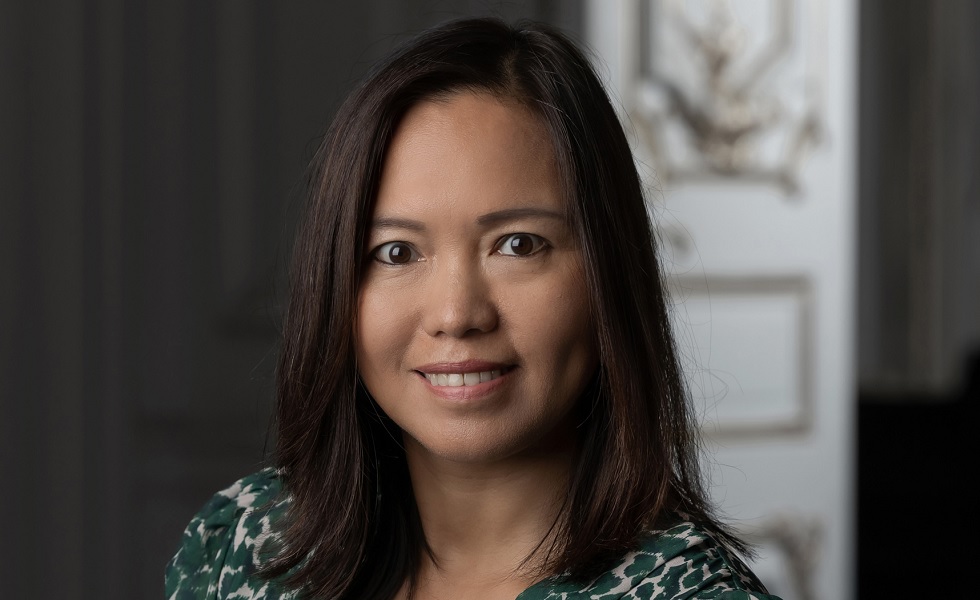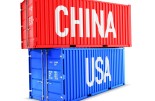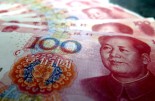Carmignac: Still numerous opportunities in China

Most of the concerns regarding the situation in China are too pessimistic. The country plays a major role in the crucial energy transition and Chinese companies are increasingly focusing abroad. These developments present numerous opportunities.
Door Joost van Mierlo
That’s the view of Haiyan Li-Labbé, co-Manager of the Carmignac Emergents fund, one of the world’s leading and most successful funds when it comes to investing in emerging markets.
Carmignac was an early adopter of emerging markets investing. The first emerging markets fund was launched in 1997. Since then, several new funds have been added, each with their own specific approach. What has remained is an investment style with a concentrated portfolio in which return and ESG goals go hand in hand.
Li-Labbé has been involved with Carmignac for 12 years. She has been managing the Carmignac Emergents fund with Xavier Hovasse for the past two years. Her expertise lies in her native China. ‘I am a bridge between the two worlds’, says Li-Labbé, who came to live in France 25 years ago. ‘Through contact with my friends and family, I am able to get a good picture of the developments in the country. There are reasons for concern, but they are exaggerated. That, in turn, leads to exaggerated negative valuations of Chinese companies. We can benefit from that.’
When people write and talk about China, the emphasis is on political tensions with the West. How do you view that issue?
‘We have to be honest. The situation in Taiwan is a serious risk. The concerns are justified. We also don’t know whether it will come to a military confrontation. What we do know is that this negative sentiment has had a big effect on the valuations of Chinese companies.
If we balance the risks and opportunities, we are ultimately positive about our investments in China. In doing so, we focus particularly on the Chinese market itself. Chinese companies dependent on exports are less attractive to us because of numerous barriers.’
China reopened quickly after lifting all curfews around COVID-19. Where are the opportunities?
‘In the past, real estate, along with banking development and more recently the internet spurt drove economic growth. Now we see that focus has shifted to industrial and technological innovation. China is playing a leading role when it comes to the energy transition. A company like Sungrow, a solar inverter manufacturer, is playing a crucial role. It is a perfect match for us between achieving attractive returns and our focus on achieving ESG goals, in this case around the environment. But there is also a lot of progress in the social field in China. This is underexposed. In the past 30 years, 700 million Chinese have risen above the poverty line. When I look at Zhejiang, the province where I grew up, it has long since ceased to be a developing country. It is one of the smallest provinces in China, but now also one of the richest ones and thus an example for the other provinces. When I travel there now, I feel like I’m in a Western country. Most buses are electric, everyone pays with smartphones and almost 80% of the population is financially covered through pension funds and social security.’
In your allocation, how are you benefiting from this situation in China?
‘We focus on e-commerce, for example. That ensures that high-quality products are also available in rural areas. But we also have a significant stake in Chinese companies listed on the Hong Kong stock exchange. Many Chinese ADRs of Chinese companies have a dual listing in the US, but also in Hong Kong. This will be even more the case in the coming years, is our assessment.’
As you made clear, your emphasis is also emphatically on ESG policy. Which sectors or companies are dropping out as a result?
‘Indeed, our fund Carmignac Emergents is an SRI strategy with a sustainable objective, investing in companies aiming to have a positive contribution to the environment and to society. In order to achieve this objective, we also filter out our investment universe to exclude companies with a harmful or unsustainable activity and those that have a negative impact. For example, a few years ago, we deliberately made the decision to no longer invest in the gambling district around Macau, because it’s no longer in line with our ESG objective.
Another example is Tencent. That is an excellent company, but more than half of its revenues come from gaming products. Regarding our sustainable investment objective, we prefer investing in companies that can diversify their revenue in activities or products offering solutions to inherent emerging market issues.’
You mentioned Carmignac Emergents, your flagship emerging market equity fund. Can you tell us more about it?
‘Carmignac Emergents is our global EM equity fund, aiming to generate positive performance while seeking to achieve a positive footprint on the environment and society. We focus on countries and companies with long-term growth potential that provide solutions to the inherent challenges of emerging markets.
Our fund gathers our convictions regarding emerging markets. We particularly favour Asian stocks, especially Chinese and Korean, given their attractive growth prospects and particularly attractive valuations after 20 months of decline. Nevertheless, we have also decent investments in Latin America, notably Brazil and Mexico.
Thus, Carmignac Emergents offers the possibility to seize promising opportunities across the emerging equity universe.’
Forming more than 40% of the portfolio, China is clearly very important. In what other countries do you see opportunities?
‘We are looking to invest in countries with stable political environments. We are positive about South Korea. Therefore, the fund has significant holdings there. The valuations of Korean companies are particularly attractive right now. Now that it is more difficult for Chinese companies to export to the US, you see assembly being moved to other countries in East and Southeast Asia. That opens up opportunities there.
Another example is Mexico. It is increasingly clear that this country is becoming the industrial base for products exported to the US. This is what we call the nearshoring. This is not only the result of investments by US companies, but Chinese companies also see the opportunities there. To take advantage of this trend, we are invested in the Mexican bank Grupo Banorte, that we believe will continue to benefit from that.’
How do you look at a country like India with its youthful and welleducated population?
‘India is undoubtedly one of the most promising and important countries for the future. Right around this time, India is passing China as the country with the highest population. But the average age is also quite a bit lower, and the birth rate is significantly higher. For a host of reasons, such as restrictions around capital imports, Indian companies are quite pricey right now. But we are keeping a close eye on developments there. The country will only grow in importance over the coming years.’
How do you view indirect investments in Western companies that operate a lot in emerging markets?
‘It’s not something we use a lot. Some funds that invest in emerging markets invest in companies like LVMH and Hermes because they generate a significant portion of sales in emerging markets. But we don’t really see how that relates to our ESG ambitions. In Carmignac Emergents, our prospectus and investment guidelines allow us to invest in companies that generate a substantial amount of their revenues from emerging countries. However, we rarely use this.’
|
CV Haiyan Li-Labbé is a Fund Manager with a focus on the Greater China markets within the Emerging Equities team. Li-Labbé joined Carmignac in 2011. She started her career in 2001 at Société Générale Investment Banking and was the responsible Analyst on Asian convertible bonds. Between 2004 and 2011, she was a Fund Manager and Head of Asian Projects at ADI Alternative Investments and OFI AM. Li-Labbé holds a Master’s degree in French from Beijing’s Foreign Languages University, and a Master’s degree from Ecole Supérieure de Commerce de Paris (ESCP). |
|
Disclaimer Marketing content sponsored by Carmignac. Legal information can be accessed by clicking here. The asset manager recommends that you consult the prospec- tus/KID before making a final investment decision. Investing involves a risk of capital loss. |








